- Home
- Anne Frasier
Hush Page 4
Hush Read online
Page 4
Max stopped in his headlong flight for the door. He let out a deep, weary breath, wishing the guy in front of him would vanish, taking the woman and her cat with him.
"Is it true that a baby was murdered too?"
"You know damn well I can't talk about the case right now. When I know more, we'll get you a copy of the report."
"What about a press conference? Do you foresee this being big enough to merit a press conference?"
"We don't hold press conferences for every murder in Chicago."
"Yeah, but I thought this might be different."
"Only if you make it different. You won't do that, will you?"
"You mean pad a story?"
"Exactly."
"Hell no. I mean, no. Of course not."
"Good."
Max glanced to his left, ready to indicate to Dunlap that it was time to go. She wasn't there. He spotted her near the check-in desk, talking to the street person they'd passed earlier. She was holding up the cage so he could look in at her cat. The man was nodding and smiling now—two pet owners comparing notes. Ivy pressed something into the man's hand—money, Max supposed—then quickly caught up with Max.
"What a relief to see you treat everyone with courtesy," she said conversationally once they were outside in the parking lot with the noise of an overhead street ramp, the heat, the people. "And here I thought it was just me."
"Should I be more like you and give every homeless person in Chicago money?"
"The reporter was just doing his job."
"I don't have the time or the inclination to be charming."
Chapter 5
The reality of being back in Chicago was beginning to sink in. A part of Ivy couldn't believe she was here, in the city where such awful things had happened, where her life had changed so drastically.
She could feel her mind slipping.
Don't fall apart. Not in front of him. Not in front of anybody. Don't fall apart.
This is what I wanted, she told herself. True, but that didn't mean it didn't scare the hell out of her.
The noise. The chaos. Had it always been this bad? Cars honking, sirens blaring, the shriek of bus brakes, and the smell of diesel when the huge vehicle pulled away from the curb? Construction, wood-planked walkways, jackhammers. How did people stand it? How did they think? Function?
The man beside her seemed oblivious to it all.
It was two o'clock in the afternoon. They were driving through city traffic, Max Irving steering with one light hand on the wheel. There were cars in front, cars behind, to the left, the right. She tried to shut herself off, tried to block out the noise of the traffic, to block out the past that suddenly didn't seem like the past anymore.
Confusion. So much confusion.
"Here." Max startled her by tossing a folder in her lap. She stared at the bold, black print: Sheppard Case.
"Go on. Open it. That's why you're here, isn't it?"
Ivy opened it.
The first thing she saw was an eight-by-ten color glossy of the murdered mother. It was a close-up of her face. Straight, chin-length blond hair, matted with blood, blue eyes open wide. Lividity on the right side. Lividity occurred when the heart stopped mixing plasma. The red cells settled like sediment in wine, turning the skin anywhere from red to purple. From the photo, anyone with a slight knowledge of forensics would be able to see that the victim had been moved several hours after the death. So the head shot, horrific as it was, wasn't taken simply for shock value— although Ivy was fairly certain that's why Irving had not only tossed it to her, but why he'd put it on top. Talk about staging. She refused to play his game. She slammed the folder shut and closed her eyes, resting her head against the headrest.
"Not going to puke, are you?"
"Certainly wouldn't warn you if I was."
She may not have ever profiled an actual case, but she'd spent the last ten years profiling everyone she came in contact with, from bank teller to grocery clerk. Ivy had honed her profiling skills until she'd gotten so good at judging the book by its cover that she'd been in danger of becoming a parlor trick at the psychology department's yearly Christmas party.
Irving was easy. A hotshot detective, burnt-out but unwilling to admit it to himself. Used to have a sense of humor, but didn't have time for such nonsense anymore. Problems on the home front. Looking at him, a layman might conjure up a trophy wife, one he ignored unless they were fighting about his job and his lack of attentiveness. But Ivy had noted his rumpled clothes, his air of distraction—an ongoing state that clung to parents, especially single parents, who were juggling two worlds: the world of work and the world of home.
What she didn't understand was why he had it in for her. "Why do you resent me so much?" She opened her eyes and lifted her head. "Is it because I'm a woman?"
"That has nothing to do with it."
"Because I'm from Canada?"
"Oh, come on. I don't want to get into this."
"I do." Anything to get her mind off the past. Earlier she'd been too tired to fight with him. Now she welcomed it.
"I don't have anything against Canadians. I just think we can handle this without your help."
"You didn't handle it before."
"I wasn't on the case before."
Somebody cut him off. He laid on his horn, then missed the light completely. "Shit," he said, slamming his hand against the steering wheel. Apparently he wasn't as oblivious as she'd thought.
In the backseat, right behind his head, Jinx decided it was time to complain by letting out a long, weird, drug-laden meow.
"You wanna know what bothers me?" Irving asked, his voice and demeanor reflecting ever-increasing agitation. "That cat. That damn cat. I don't think somebody who has to haul her damn cat with her is going to know jackshit about a serial killer. I don't think somebody who keeps flinching"—he snapped his fingers in front of her face, she flinched and drew back in the seat—"every damn time a horn honks is going to be able to handle a case like this. I don't think spending ten years with your nose in a book is quite the preparation you need for this job. I worked my ass off to get where I am. I went to George Mason University. I trained at Quantico. Do you know how hard it is to get into Quantico?"
Okay, she could see his point, understand why she was a sudden irritant. She wished she could tell him the truth, tell him why she was every bit as qualified as he was, but she couldn't. And anyway, none of that really mattered. Not Max Irving's opinion of her, or her lack of a satisfactory presentation. Catching the killer, that's what mattered.
Ivy was ready to take the first apartment they looked at, just to get it over with, just to get out of Irving's car, get out of the noise, get Jinx settled, take a couple of aspirin, be alone. She needed to be alone so all of this could settle, could soak in. This being in Chicago, a place of unspeakable horrors. Here. Now. All around her.
Memories. She kept holding them back, holding them back. . . . But they were building. She didn't know how much longer she could hang on, how much longer before they came crashing into her mind.
"This place is no good," Irving said halfway into the tour of the prospective apartment.
Ivy opened her mouth to protest when Irving grabbed her arm and dragged her with him down the dimly lit hall that smelled of marijuana, body odor, cooked cabbage, and the rotten smell a building succumbed to when the termites were done with it.
She planted her feet firmly on the floor and wrenched her arm free, feeling true anger for the first time that day, for the first time in maybe . . . years.
"What the hell are you doing?" she demanded.
"Keeping you from making a stupid mistake."
She wanted to slug him. Instead, she pushed at him with both hands while the manager watched from the open doorway of the apartment they'd just exited. "Don't tell me what to do," she said. "Are you always such an ass?"
"Only when I have to be."
"That's reassuring."
He began ticking off the reasons she shouldn't take the
apartment. "Bad locks. Bad windows. Cockroaches. And ... a crackhead living in the hallway."
She followed the direction of his gaze to a dark corner where she could barely make out a human shape curled up on the tile floor.
There were times to hold your ground, and times to let that ground be conquered and taken. Irving could damn well place his flag and take the battle for his own.
His mobile phone rang and he quickly answered it.
"What time do you get off work?" Irving asked the caller. Then, "I'll be there to pick you up. Understand? No catching a ride with anybody, no taking off to Ryan's." A pause. "No excuses. I'll be there at nine o'clock."
When kids were little, you dropped them off at the sitter and didn't worry about them for the rest of the day. When they got older, got to be teenagers, it was a completely different story.
"A teenager?" she asked after Max ended the call.
"Yeah." There was a lot of weight in that single word.
"Ah." She nodded.
"A son," he added, as if by telling her she would understand how much more difficult having a son would be over a daughter. Which told her he didn't have a daughter.
"Ah."
"You have any kids?"
She'd been asked the question so many times in her life that her reply was instant and without emotion. "No, but my friend Helen says having a teenager is like living in a war zone where you have to be hyper- vigilant at all times."
He laughed and tucked his phone away. "Ethan's a good kid. A great kid. We're just going through a rough patch right now. We'll get through it."
It wasn't his words, but rather the emotion and emphasis behind them that told Ivy he loved his son very much.
The next apartment met with his reluctant approval. It was a turnkey, meaning the basics like sheets, towels, TV, and dishes were supplied. And there was a grocery store a block away.
The place had no living room to speak of. Upon stepping inside, you were immediately in the kitchen. The first thing you smelled was gas from the pilot light. Right there was a small table with two black stools, a few steps more and you were at the white enamel sink. To the left of the kitchen area was the bedroom, with the bathroom off that. Next to the double bed was a window with white paint so thick it would be hard to open or shut. Ivy could tell that the building had once been nice, years and years ago; it still had that hint of past elegance, like beautiful wooden floors and ornate ceiling lights.
Students lived there. And businessmen whose real homes were somewhere else. Construction workers. Displaced people in a transient period of their lives. Some kids. Mothers in the middle of a divorce. Or maybe their husbands had abused them one too many times and they'd moved out.
Not a happy place.
But a real place.
"Get another dead-bolt lock on the door," Max told the landlord.
Ivy collected Jinx from Max's car. Max seemed suddenly more than happy to carry her huge black suitcase up the two flights of stairs. He put it down just inside the door and placed the case files—one thick, one thin—on the narrow kitchen table.
"There's no direct subway line from here to Grand Central Police Station," Max told her. "You'll have to take the Green Line to Central, then catch a metro bus."
"I'm sure I'll get the hang of it." Even though she was in an unfamiliar area of Chicago, she had a good sense of direction.
After Max left, Ivy sweet-talked the still-drugged Jinx, opening his cage so he could come out when he felt like it. She offered him water that he refused to drink and poured dry cat food in a bowl.
While he was still indisposed, she walked down to the corner store and picked up some groceries, along with other necessities like toothpaste, toilet paper, and cleaning supplies.
Back at the apartment, she donned a pair of yellow rubber gloves and cleaned the bathroom—claw-foot tub, sink, medicine cabinet, and toilet—with a disinfectant so strong it made her eyes and throat burn.
When she'd completed the requisite tasks needed to make her new home habitable, when she could no longer put off the inevitable, she sat down at the table and opened the thick case file, the one labeled "Madonna Murders."
Chapter 6
Ivy stared at the glossy black-and-white eight-by-ten. The photo was of a woman murdered in a neighborhood park sixteen years ago, her body dragged into the bushes, her baby discovered not far away, wrapped caringly in a blue blanket.
The way the infant was found was typical of murder by a relative's hand, often a parent. Someone who loved the child. But the Madonna Murderer most likely didn't know any of his victims. If by some chance he did, he probably didn't know them well. But in his confused mind, he thought he knew them. In a way, he thought all of the victims belonged to him.
The mothers weren't treated with the same—for lack of a better word—respect. Their bodies were left like so much garbage, stab wounds to the chest and abdomen, ligature marks and blue bruises left by the killer's fingers around the neck. There had been an ongoing debate over what came first, the stabbing or the strangulation. Cause of death was sometimes asphyxiation, sometimes bleeding out.
In the tiny apartment, there were no chairs, only the stools. Nothing to prop under the doorknob. Jinx meowed, beginning to come out of his drugged stupor. He stepped from his carrier on uneasy legs, drank a little of the water Ivy had poured for him, then took a few more steps and fell over, the bell on his collar ringing.
"You poor thing."
Ivy picked him up, the heavy limpness of his body a stark contrast to the wired way he usually felt when she held him. She wouldn't give him as much of the tranquilizer on the way home.
It was apparent that he wanted to be left alone. She removed his stretch collar, sliding it over his head. Then she showed him the litter box, which he sniffed suspiciously before getting back in the carrier—a vessel he normally avoided to the extent of hissing and yowling.
Ivy hung the little red collar with its tiny bell and silver rabies tag over the doorknob, then sat back down at the table and took a deep breath.
The smells of the inner city ... Stale sweat, cooking grease, moldy wallpaper glued to rotten wood. Plastic garbage containers overflowing with soiled diapers. Sour, spit-up milk caked to stained towels.
The sounds of the city. Sirens. The squealing of tires on hot, sun-softened asphalt. A baby crying. The repetitive bass of rap music coming from a chopped blue Chevy that cruised slowly up and down the narrow street, its modified engine producing a deep testosterone rumble.
The apartment with its air of slight decay . . .
It all took Ivy back to a day she'd hoped to examine from a great distance. But past and present meshed, and she realized with dismay that her life had not moved forward in a linear fashion, but was spiraling backward upon itself until she was one inhalation away from yesterday . . .
They say bad things come in threes. That was certainly true for Claudia Reynolds, the person Ivy had once been. Within a short span of time, she had lost everyone she cared about: her father, her mother, her boyfriend.
Under her photo in her suburban Des Moines high school yearbook was the caption "Girl Most Likely." That could have been taken any number of ways, but in Claudia's case it had meant girl most likely to succeed. She'd graduated with so many offers of full scholarships that she had been able to pretty much take her pick of schools, and finally she had decided upon the University of Chicago. At the time, Chicago was known as the murder capital of the world, but that didn't stop her from settling on the school where her boyfriend was going. She'd planned to pursue a degree in fashion design. It seemed so frivolous now, so shallow—and yet she was still drawn to fabrics of rich hues and textures. And really, college hadn't been about a degree, it had been about being near Daniel. She'd imagined their relationship quickly blossoming to the point where they would share an apartment. Share dreams. Share the future.
She became pregnant.
Up until the pregnancy her life had been perfect to the poi
nt of embarrassment. Bad things didn't happen to Claudia Reynolds. When she was little, her charm was so great that people would rub her head for luck. On her sixteenth birthday, she bought a lottery ticket and won half a million dollars. But later the money was taken away because she hadn't been old enough to buy a ticket in the first place.
Strange luck.
Once during a school hockey game, the goaltender had her kiss his smelly gloves—and his team won. After that, he would always look for her before he took to the ice. One time, when she wasn't there to kiss his gloves, he broke his arm and had to sit out the rest of the season. The next year he couldn't get the magic back and after a month of bench-warming he quit, taking his wounded pride with him.
It wasn't a good thing to be someone's luck. There was so much pressure, and so many things could go wrong.
Her accidental pregnancy threw something out of balance and suddenly her life went from charmed to cursed. And once the bad stuff started, it didn't stop.
She'd always had weird periods so by the time Claudia realized she was pregnant it was too late to have an abortion—and she wasn't sure she could have gone through with it anyway. Before she could share the news, her boyfriend tearfully told her he'd met someone else.
A week later, her father, a grade-school teacher, had a heart attack and died. After that, Claudia's mother, who'd depended on her husband for everything, seemed to lose the will to live. She mentally drifted away. Her doctor put her on antidepressants and tranquilizers. In that numb state, she stepped off a curb in front of oncoming traffic and was instantly killed. But Claudia knew what had really killed her: sorrow.
And so something in the universe shifted, and Claudia became one of those people she'd always looked at from a distance, never thinking about what the inside of their lives must be like.
In the three years she'd been in the relationship with Daniel, her circle of friends had dwindled to two—herself and Daniel. When it was over and she finally looked back without the happy glasses, she wondered how she'd allowed herself to turn into one of those girls who breathed for one person and one person alone. She had allowed herself to be consumed by someone she hadn't even really known. From that point on, she swore she would never let a man be the most important thing in her life.

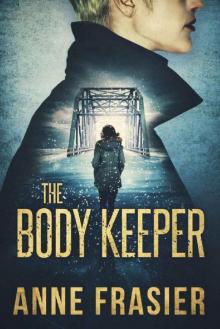 The Body Keeper
The Body Keeper Hush
Hush Play Dead
Play Dead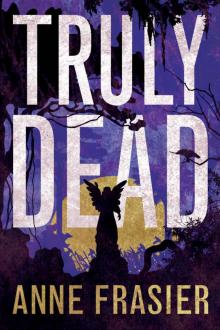 Truly Dead
Truly Dead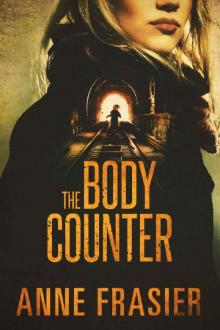 The Body Counter
The Body Counter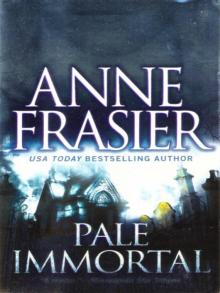 Pale Immortal
Pale Immortal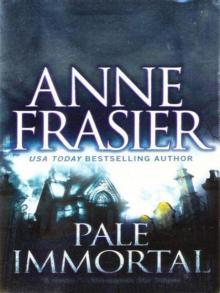 (2006) Pale Immortal
(2006) Pale Immortal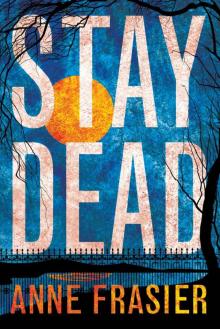 Stay Dead (Elise Sandburg series)
Stay Dead (Elise Sandburg series) Sleep Tight
Sleep Tight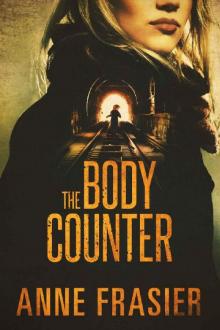 The Body Counter (Detective Jude Fontaine Mysteries Book 2)
The Body Counter (Detective Jude Fontaine Mysteries Book 2)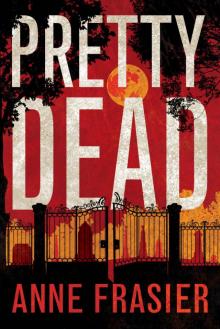 Pretty Dead
Pretty Dead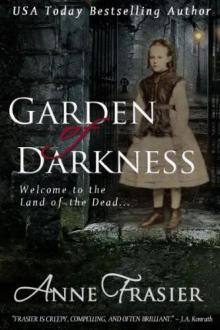 Garden of Darkness
Garden of Darkness